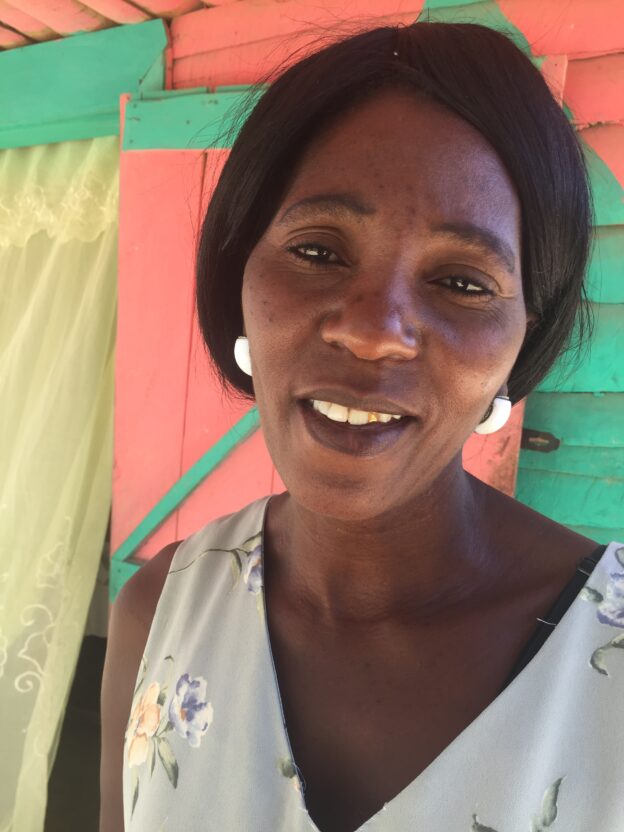When Roselène’s father died, her mother gave her up to be raised by an aunt and an uncle. She just couldn’t support all her children, so she let the couple take Roselène.
Roselène left them to make a life with a man when she was still young, and she and her first partner had five children. But she and her kids eventually left the man. His infidelities were bad enough. He took up with a series of women while he and Roselène were together. But worse than that was that he wouldn’t help her support the kids.
She met another man, and they had three children together. He, however, eventually left her. They had begun to build a small measure of wealth together, but the man took it all with him to move in with another woman. Roselène was left with nothing she could use to support her kids, so she had to let him take them, too.
By then, her first set of children were older. She was left with only the youngest boy, a teenager. The two lived together in a small shack, depending on occasional gifts from neighbors or from her three oldest children, who had left Haiti to work in the Dominican Republic. Without a regular source of income, the two were often hungry, and with hunger came humiliation. “I remember I had a couple of cups of kabesik” — that’s low-grade rice that Dominicans use as feed for livestock — “but I couldn’t prepare it because I had no oil or beans. I sent my boy to a neighbor’s to ask her for a couple of spoonfuls of oil, but she just sent him home. ‘What I have to eat, I’ve eaten. What’s left is for sale,’ she told him.”
That was shortly before Roselène joined CLM. She chose goats and poultry as the enterprises for the program to give her, and she received two goats and a range of birds. The larger of the two goats has been disappointing so far. It’s been pregnant twice with a total of three kids, by all three were stillborn. The smaller one, however, finally had its first litter, and its single kid is healthy.
Her poultry has struggled as well. Her turkeys and ducks have both laid eggs, but the young haven’t developed. She remains hopeful, however, about the ducks’ latest clutch of eggs.
She has, though, made good use of her savings club, or “sòl.” Each week, she and her nine fellow members make a contribution and one of them takes the whole pot. The first round, the contribution was 100 gourds, so the pot was 1000. She deposited the whole sum in her savings account. When the second round started, they decided to raise the weekly contribution to 200 gourds. When she received the 2000-gourd pot, it was enough for her to buy a small pig. And shortly after that, one of her older children sent her some money that she was able to use to buy a second pig. Keeping two pigs fed is a struggle. Pigs are demanding. “I buy feed when I can, but sometimes I just have to scavenge in my neighbors’ fields.” She is excited nonetheless about the potential for progress that they represent.
And her life has changed in other ways, too. Last year, she met a man. They fell in love and were married in December. She moved into a small, new house with her husband. He’s a hard-working older man. He makes the tubes out of palm-seed-pods that residents of Haiti’s Central Plateau use to package the unrefined brown sugar called “rapadou,” which is popular in that part of the country. He is an older man, and the couple is agreed that they will not have children together.
She had to leave her teenage boy to stay in the house nearby that she built with the CLM program’s help. She lives quite close to him, and they see each other every day, but she wanted an adult to be with him all the time. So she rented one of the house’s two rooms to an older woman. “She keeps an eye on him for me.”
